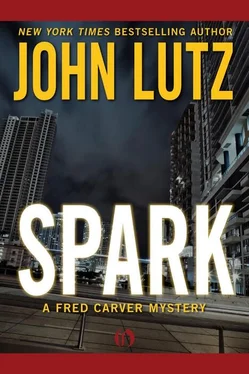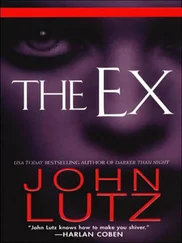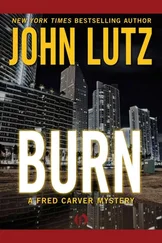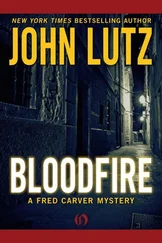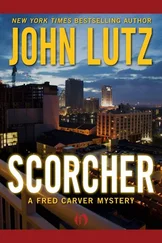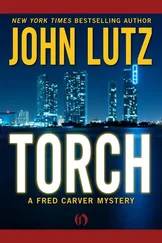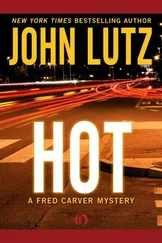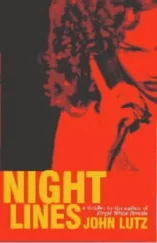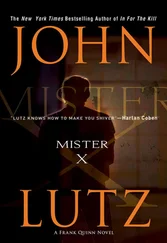John Lutz - Spark
Здесь есть возможность читать онлайн «John Lutz - Spark» весь текст электронной книги совершенно бесплатно (целиком полную версию без сокращений). В некоторых случаях можно слушать аудио, скачать через торрент в формате fb2 и присутствует краткое содержание. Жанр: Криминальный детектив, на английском языке. Описание произведения, (предисловие) а так же отзывы посетителей доступны на портале библиотеки ЛибКат.
- Название:Spark
- Автор:
- Жанр:
- Год:неизвестен
- ISBN:нет данных
- Рейтинг книги:3 / 5. Голосов: 1
-
Избранное:Добавить в избранное
- Отзывы:
-
Ваша оценка:
- 60
- 1
- 2
- 3
- 4
- 5
Spark: краткое содержание, описание и аннотация
Предлагаем к чтению аннотацию, описание, краткое содержание или предисловие (зависит от того, что написал сам автор книги «Spark»). Если вы не нашли необходимую информацию о книге — напишите в комментариях, мы постараемся отыскать её.
Spark — читать онлайн бесплатно полную книгу (весь текст) целиком
Ниже представлен текст книги, разбитый по страницам. Система сохранения места последней прочитанной страницы, позволяет с удобством читать онлайн бесплатно книгу «Spark», без необходимости каждый раз заново искать на чём Вы остановились. Поставьте закладку, и сможете в любой момент перейти на страницу, на которой закончили чтение.
Интервал:
Закладка:
Solar Tower was only about five stories, perhaps not tall enough to be called a tower, but it was a sleek, tinted Plexiglas and copper building that dominated the block it was on in downtown Orlando. The lobby was sparse and cool, clean except for a few cigarette butts and black heel marks on the veined marble floor. Carver studied the directory and saw that Solartown, Incorporated occupied the entire top floor. The rest of the building was leased out as office space to various smaller businesses. A doctor, a lawyer, no Indian chiefs.
Carver located the elevators only by the floor indicators on the marble wall. He’d no sooner pressed a black plastic button than a hidden door hissed softly and slid smoothly open. A tall blond woman in a black business suit smiled at him as she stepped from the elevator and hurried across the lobby toward the Orange Avenue exit. Carver watched her from the paneled and carpeted elevator until the doors slid shut. The control panel’s black plastic buttons, like the one in the lobby, were numbered one through four, but the top button for the Solartown offices was marked with an illuminated yellow-orange sun that emitted rays like daggers. The button was warm beneath Carver’s thumb as he depressed it and the elevator launched itself.
On the fifth floor, an elderly woman in a flowing blue dress that was supposed to make her look slimmer smiled at Carver and asked how she could help him. He explained to her only obliquely what he wanted, and she advised him that the man he should talk to was Mr. Brad Faravelli, Solartown’s executive vice president in charge of development. The only hitch was, Mr. Faravelli was in a meeting.
“Everybody I want to see spends a lot of time in meetings,” Carver said.
The woman, whose desk plaque declared her to be Velma Lewis, flashed him a benign smile. “Perhaps you should have phoned for an appointment.”
“I should have,” Carver admitted. He didn’t tell her he did that as seldom as possible; in his business it was best not to afford people the opportunity to prepare for his visits.
“There’s no way to know for sure when Mr. Faravelli will be free,” Velma said. “But if you want to wait, I’m sure he’ll see you.”
Carver thanked her and limped over to a modern gray sofa that went with the building’s sleek architecture. He settled into the sofa’s surprising comfort and propped his cane against a glass-topped coffee table with magazines fanned out on it like an oversize poker hand. He drew an issue of Forbes and thumbed through it, then a slick and colorful copy of Fortune. For a while he read about trade imbalances, junk bonds, commodities, the relative strength of the dollar, the capitalization of Eastern Europe, and marveled at how far all that was from the world in which he moved.
By the time Velma informed him that Mr. Faravelli would see him and ushered him along an oak-paneled, carpeted hall to a spacious office, Carver felt poor.
Faravelli did nothing to assuage this. He was standing behind a massive, ornate desk and extending his hand for Carver to shake. Behind him was a wall that was all window, with narrow blinds tilted to alter the angle of the light but not to mute it. The rest of the walls were paneled like the hall, and the only decoration was a vast blowup of a color aerial photograph of Solartown. There was very little furniture in the office. All of it was expensive.
Straining, Carver reached across the desk and shook Faravelli’s strong, dry hand. Squinting into the light he was sure was designed to make him do just that and feel at a disadvantage, he studied Faravelli. What he could see of him.
The man in charge of Solartown development was about forty, average height, with thinning brown hair styled and parted on the side. His gray suit insistently whispered expensive, and there was a curious waxiness to his pale, regular features. He seemed to be only moments from suspended animation and display as an exhibit at a wax museum: American executive, circa 1990s. The sort who dressed for success down to his id.
In a pleasant voice he said, “Velma tells me you’re a detective investigating a death in Solartown, Mr. Carver.”
Carver confirmed that. He looked around for a place to sit down. There wasn’t any. Leaning forward with both hands on the crook of his cane, feeling like a performer about to tell lewd jokes, he said, “This won’t take much time. I came primarily to find out about Solartown’s reverse mortgage arrangement.”
Faravelli politely remained standing himself, poised and smiling. “In what context?”
Murder, Carver thought. He said, “Basically, how does the arrangement work?”
Faravelli told him in concise terms what Val Green had said earlier.
“Sounds like a profitable deal for Solartown,” Carver said, probing a little with the needle.
Faravelli showed no reaction. “It can be a good deal either way. Certainly the company profits from it, but it enables us to sell homes to our retirees at prices below market value, then actually provide them with a monthly income. That we reacquire the property at the time of death doesn’t matter much to the residents. And why should it?”
“What about the residents’ heirs?”
Faravelli shrugged. Or his silhouette did, against the light angling through the blinds. “That’s family business, not ours. To tell you the truth, Mr. Carver, we’ve had a few lawsuits threatened by heirs who claimed the residents were taken advantage of. All of them were dropped before reaching the courts, because there was simply no basis on which the plaintiffs could have proceeded. The fact is that our reverse mortgage plan allows retirees to turn home equity into lifelong income and maintain a desirable place to live.” He extended his arms and flipped his hands palms up, as if to demonstrate there was nothing up his sleeves. “Is that such a bad thing?”
Carver limped over to where he could look at Faravelli from an angle. He could see him better without the light in his eyes. The change in their relative positions seemed to irritate Faravelli, but only mildly. Carver said, “I suppose whether it’s a bad thing depends on the numbers.”
Faravelli moved out from behind the desk. He had a smooth, controlled walk, like an athlete. He glanced at Carver’s cane as if regretting that he was dealing with a cripple and couldn’t get properly tough. Carver had seen that act before.
“I don’t think I like the insinuation, Mr. Carver.”
“No insinuation,” Carver said, limping slowly to the side, “just an observation.”
“To be blunt,” Faravelli said, “I think you were implying that the reverse mortgage program is a confidence game run on the elderly.”
Carver stopped his gradual sideways shuffle. The light was at his back now. Faravelli was squinting. “You seem sensitive on the subject,” Carver said.
“I am!” Faravelli’s voice carried more anger than he’d intended. With an effort, he modulated it. “It annoys me that every time a corporation works to help the public, the effort is misinterpreted. People like you, the media, give business a bad name, and we don’t deserve it.”
“Sometimes you don’t,” Carver admitted.
Faravelli took a deep breath, then stalked back behind his desk. He picked up an elegant pearl-gray fountain pen and jotted something on a notepad. “I’m going to do you a favor, Mr. Carver,” he said as he wrote. He waved the gray memo paper a few times, then folded it in half and handed it to Carver. “Solartown is owned by five partners. This is a list of them. When you read it after leaving here, you’ll see that they’re hardly the type that would resort to a repugnant scam to make a few extra dollars.” He screwed the cap back on the pen; Carver saw that it was gold-trimmed and monogrammed in gold. Ah, the trappings of success. Faravelli probably read and understood everything in Forbes and Fortune.
Читать дальшеИнтервал:
Закладка:
Похожие книги на «Spark»
Представляем Вашему вниманию похожие книги на «Spark» списком для выбора. Мы отобрали схожую по названию и смыслу литературу в надежде предоставить читателям больше вариантов отыскать новые, интересные, ещё непрочитанные произведения.
Обсуждение, отзывы о книге «Spark» и просто собственные мнения читателей. Оставьте ваши комментарии, напишите, что Вы думаете о произведении, его смысле или главных героях. Укажите что конкретно понравилось, а что нет, и почему Вы так считаете.
